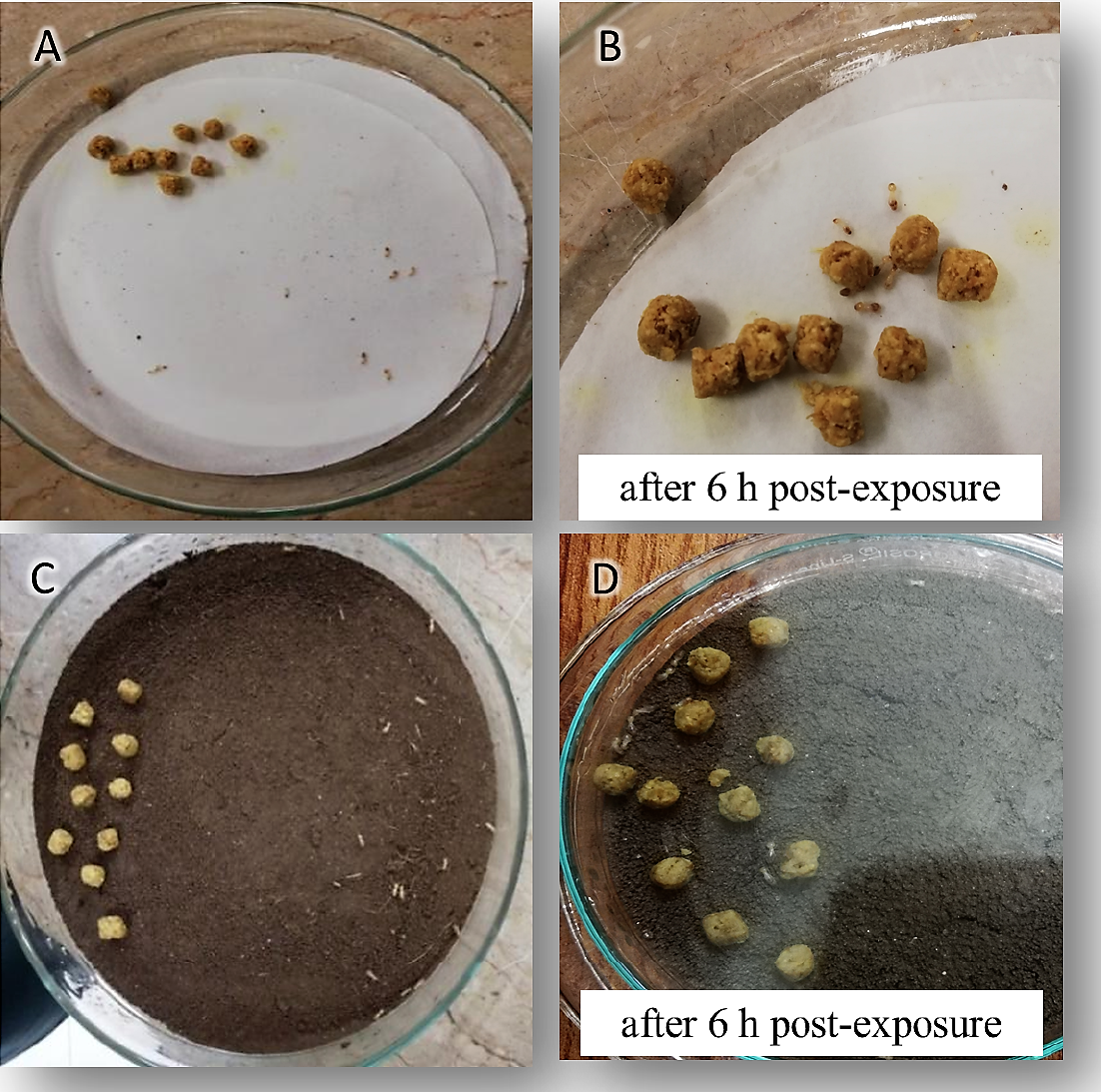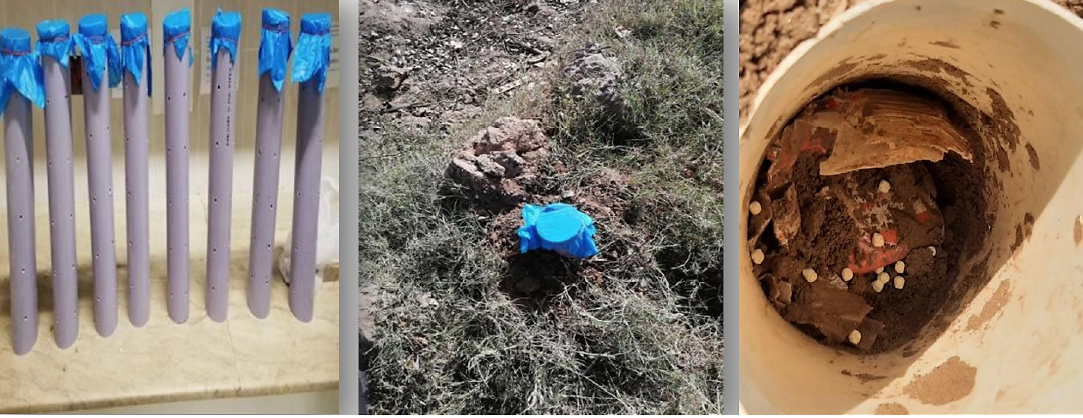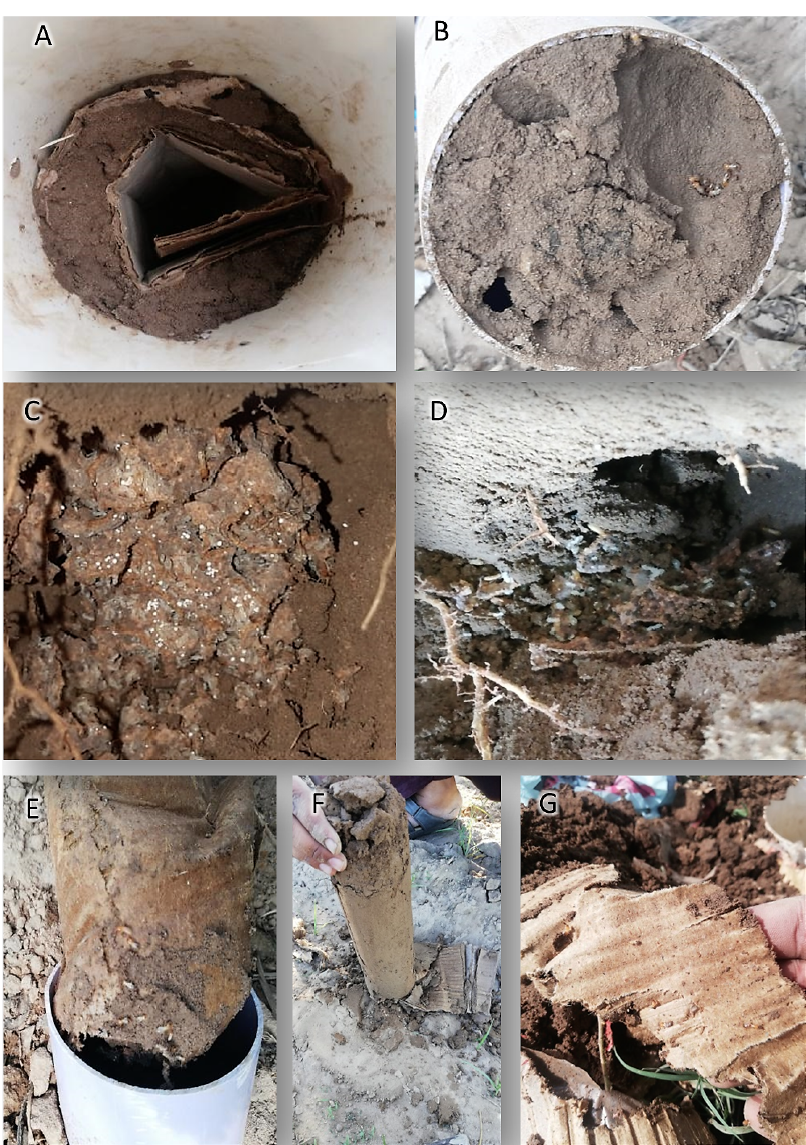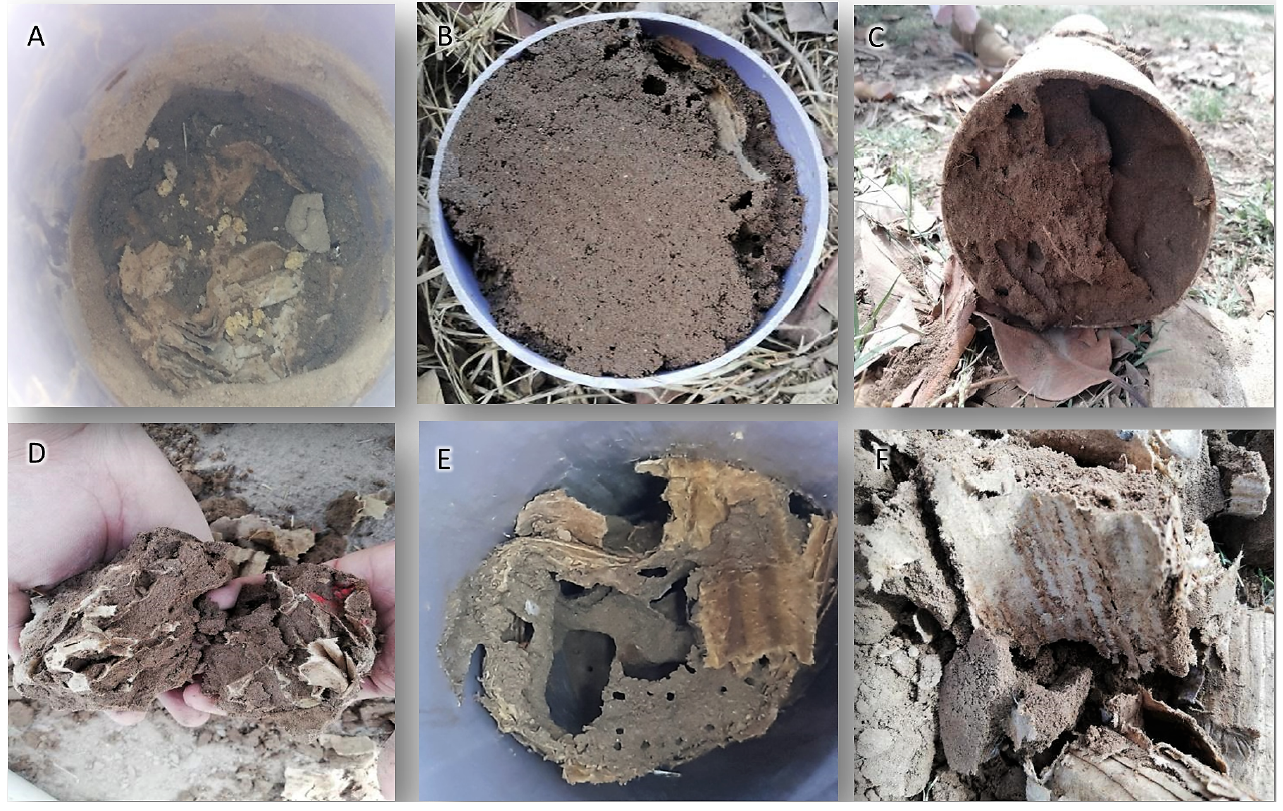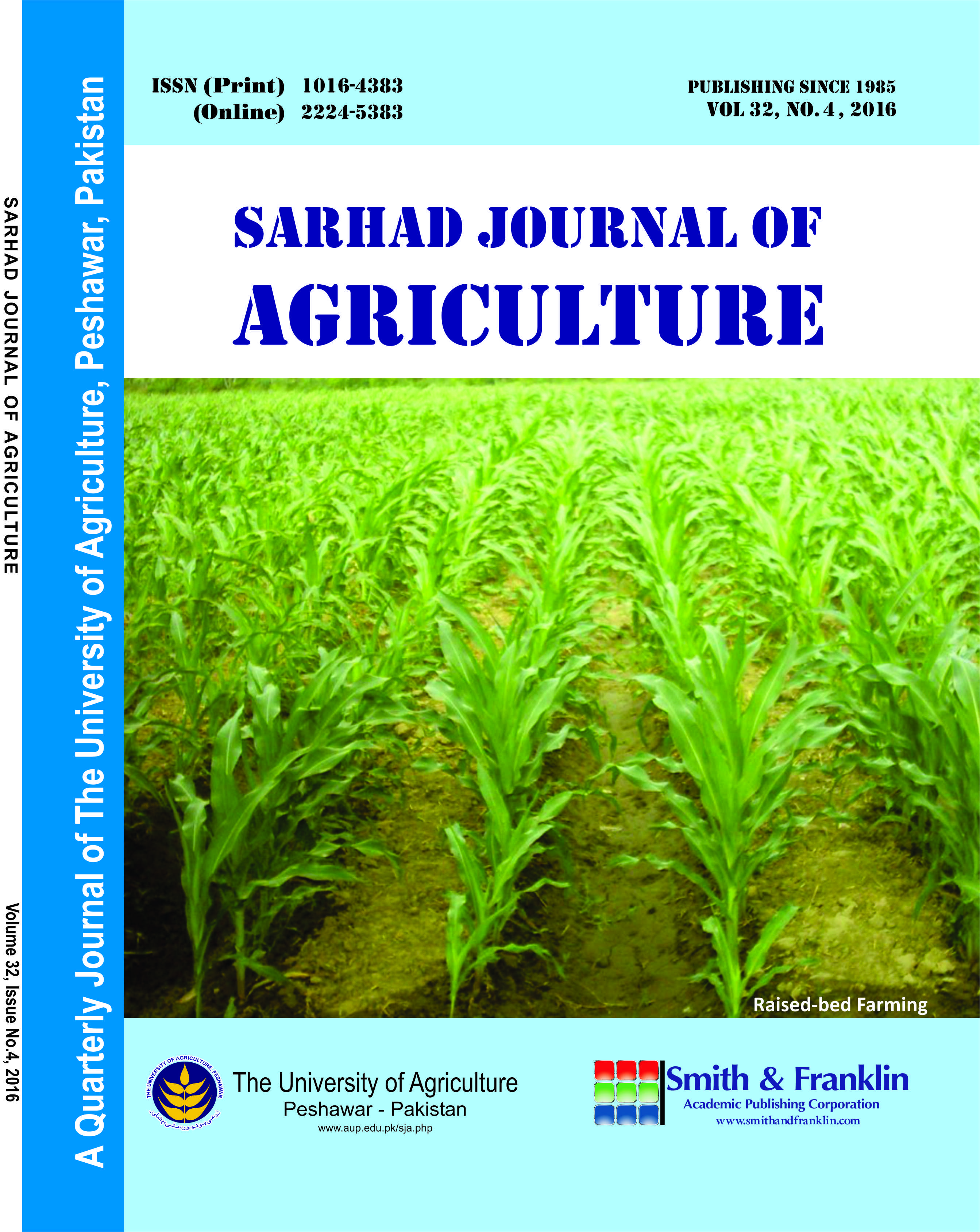Development and Evaluation of a Maize Cob Based Bait Formulation against Subterranean Termites (Odontotermes spp.)
Development and Evaluation of a Maize Cob Based Bait Formulation against Subterranean Termites (Odontotermes spp.)
Hassan Raza1, Muhammad Zeeshan Majeed1*, Muhammad Irfan Majeed2, Mujeeb-Ur-Rehman1 and Muhammad Asam Riaz1
Preparation steps of maize cob based fipronil bait formulation. A) mixing of ingredients, B) final form of bait matrix spread in glass Petri-plates, C) blowing of bait matrix through the straw, D) finally formulated beads, E) bead size measurement.
Stability test of formulated bait beads. Wetting and drying of beads were done at 24 h intervals for five consecutive days.
Test for assessing the termite attraction towards formulated bait beads on Whatman No. 1 filter paper disc (A and B) and sieved agricultural field soil (C and D).
Preparation and installation of PVC-made termite monitoring stations and placement of formulated beads inside termite infested monitoring stations.
Observations made on non-fipronil bait treated (control) termite monitoring stations at the end of 4th week post-treatment. Formulation beads not found and station was filled with soil (station upper view A), foraging termite individuals and some part of their fungal garden along with colony immatures were observed (station basal view B-D), corrugated cardboards were filled with soil and termites were found feeding on cardboard sheets (E-G).
Observations made on fipronil bait treated termite monitoring stations at the end of 4th week post-treatment. Formulated bait beads were exploited by the termites (station upper view A), no foraging termites were found at base (B and C) and in corrugated cardboard sheets (D-F).







